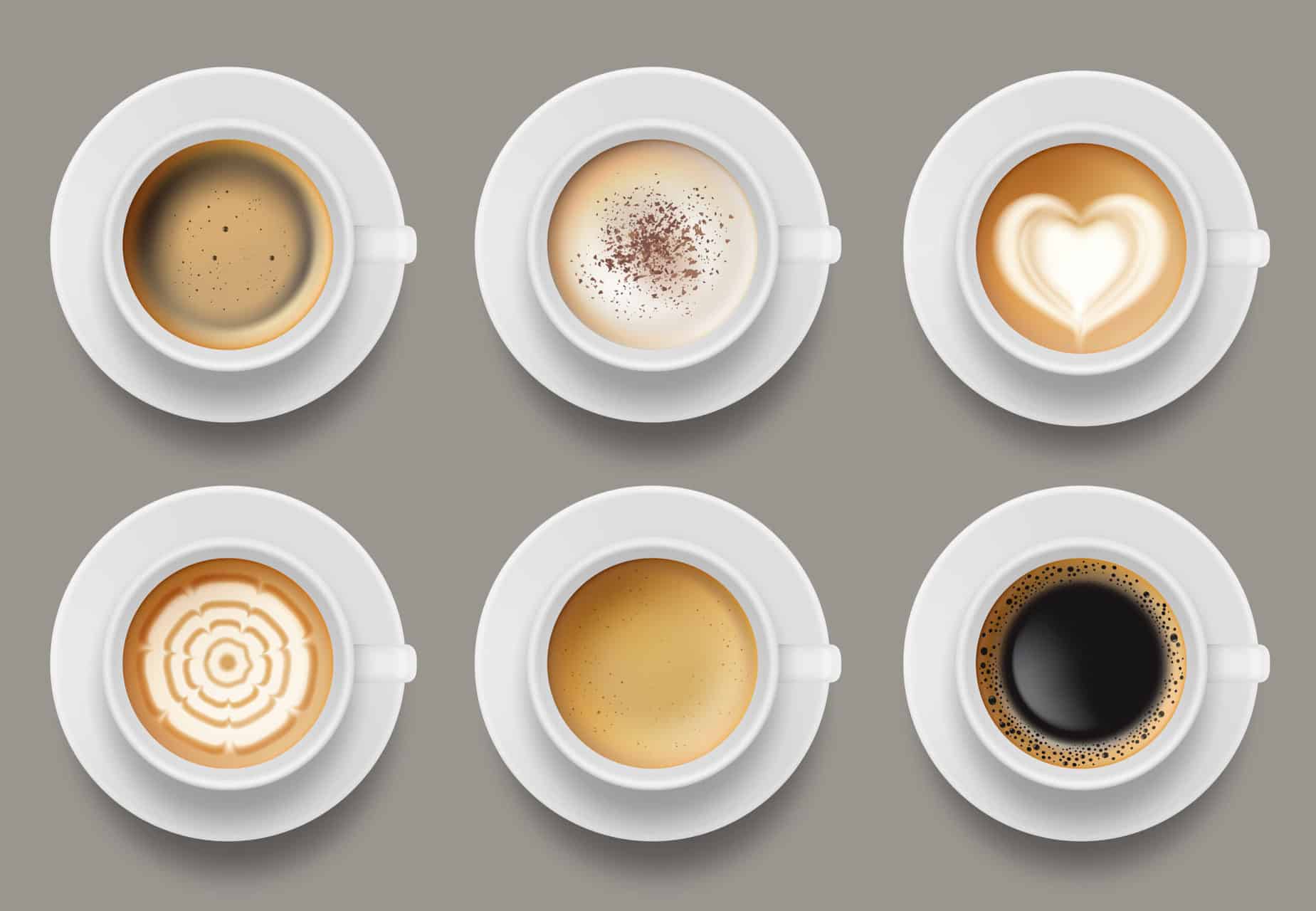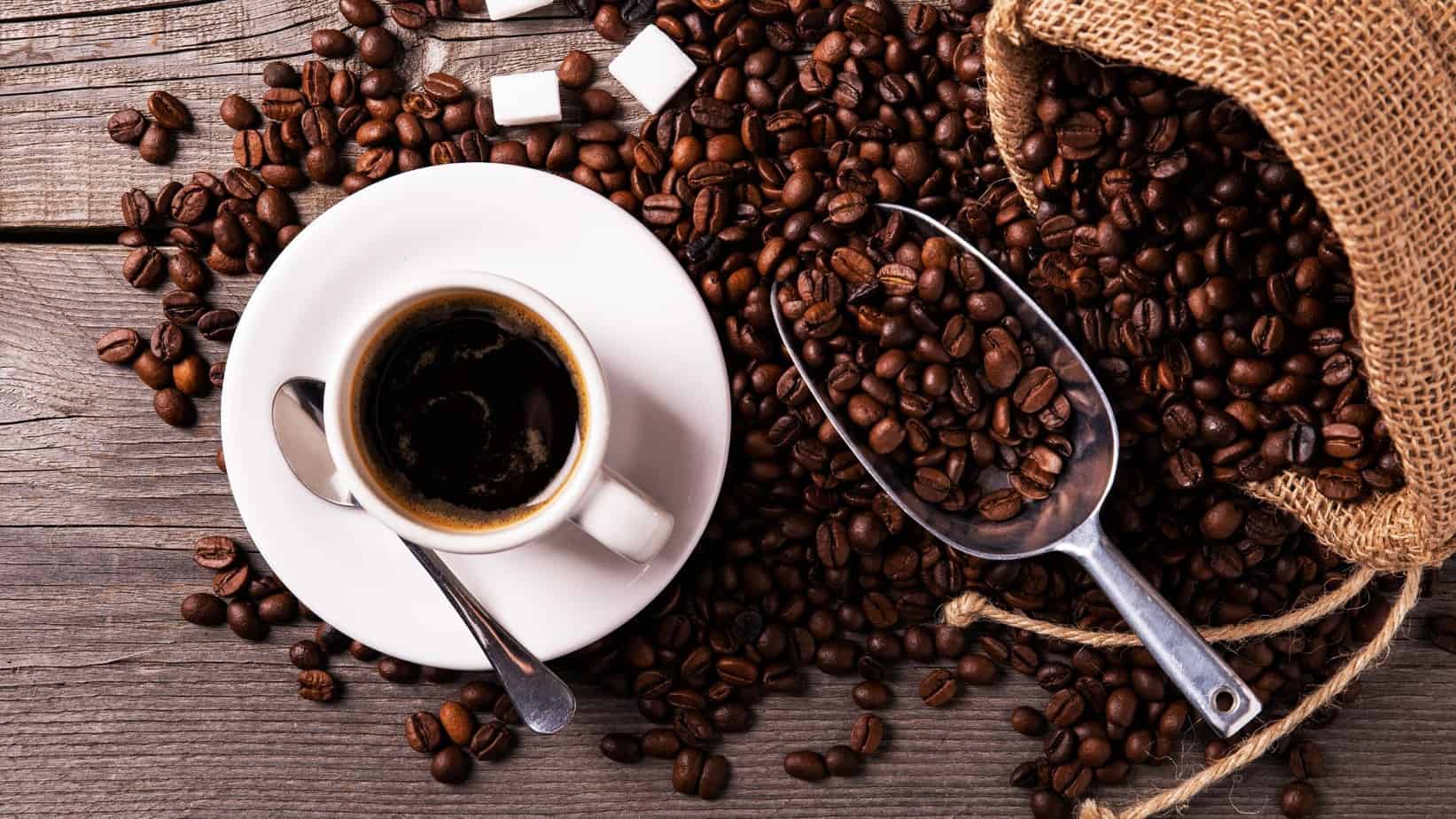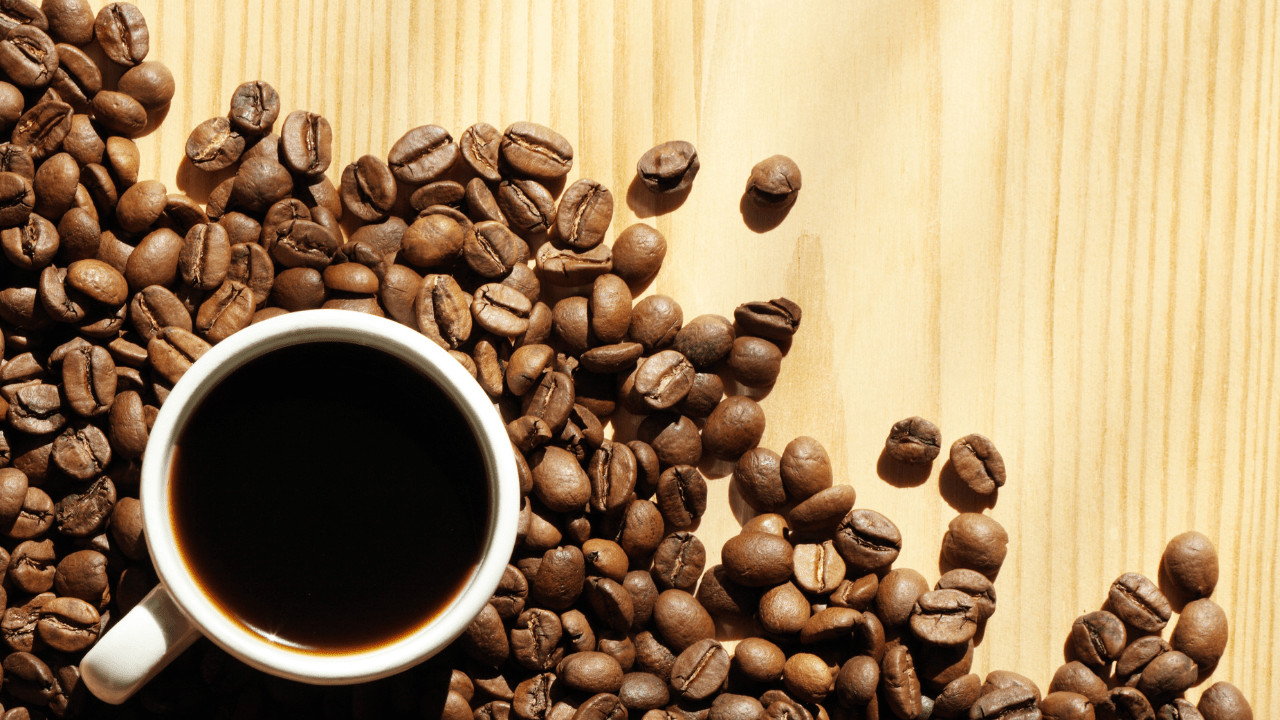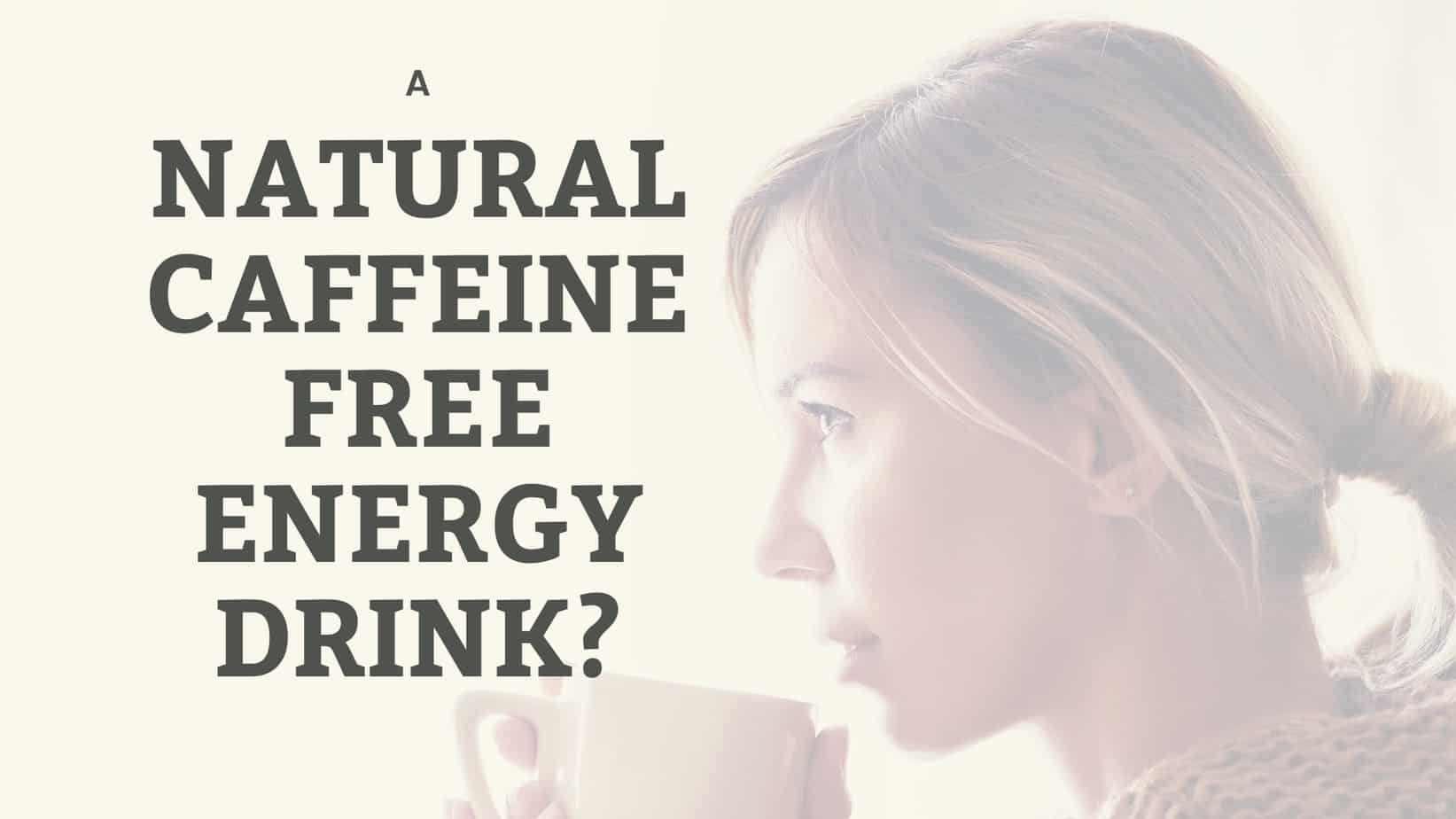If sipping a steaming cup of coffee is part of your morning ritual, there’s good news. Studies show that drinking coffee may lower the risk of some health problems including gallstones, non-alcoholic fatty liver disease, type 2 diabetes, and Parkinson’s disease.
Although caffeine is a stimulant that gives short-term energy bursts and increases alertness, a known side effect is that it also increases the heart rate and constricts the arteries. So, is caffeine in coffee risky if you have high blood pressure or borderline hypertension? Can caffeine cause a significant rise in blood pressure?
Many studies have shown mixed results on the link between caffeine and hypertension. That said, if you are not a frequent coffee drinker, an increase in blood pressure can be seen with about 3-4 cups of coffee (200-300 mg). This effect isn’t seen in people who drink coffee regularly.
The Short-Term Effects of Coffee on Your Heart and Blood Vessels
When you first drink a cup of caffeinated coffee, the caffeine causes your arteries to narrow, and that causes a rise in blood pressure. The degree to which your blood pressure increases varies, depending on the study you look at and the individual, blood pressure can rise by as much as 3-15 mmHg systolic and 4-13 mmHg diastolic. This rise in blood pressure from drinking caffeine can last for several hours. If you have healthy blood pressure, this short-term increase shouldn’t be a problem, but if you have hypertension that isn’t well-controlled, drinking a pot of coffee isn’t advisable. You would be safer limiting caffeine to one cup at most or avoiding it entirely.
Does Coffee Increase the Risk of Developing Hypertension?
Hypertension is a long-term rise in blood pressure; your blood pressure stays high much of the time. With coffee, the rise is shorter-lived. Surprisingly, some studies show that regular coffee drinkers have a lower risk of developing hypertension. One study found that people who had never smoked had a lower risk of hypertension when they drank 1 to 3 cups of coffee daily.
One explanation is the high antioxidant content of coffee. Coffee is rich in polyphenols that have antioxidant activity. In fact, coffee is the number one source of antioxidants in the American diet. Polyphenols help to widen arteries and that reduces blood pressure. However, not all studies show that drinking coffee lowers the risk of hypertension longer-term.
When do most people drink a cup of coffee? In the morning right after they wake up. That’s really the worst time since cortisol, a stress hormone, is at its highest in the morning. The combination of higher cortisol and caffeine can cause a sharper rise in blood pressure than either alone. That’s why it’s best to save caffeinated coffee for later in the day after you’ve hydrated and eaten a meal. Eating a meal lowers cortisol.
You Can Develop Tolerance to Caffeine
If you’re a regular coffee drinker, you develop tolerance to some of the effects of caffeine. After several weeks of drinking it without a break, you won’t feel quite as alert or energetic as you did when you first started consuming it. You also may experience less of a rise in blood pressure from caffeine once you develop tolerance.
Also, there are genetic differences in how individuals metabolize caffeine. Some people are slow caffeine metabolizers, meaning caffeine stays active in their system longer. This increases the risk of side effects, including a rise in blood pressure. Some studies show that slow caffeine metabolizers who consume more than 2 cups of caffeinated coffee are at greater risk of a heart attack. For example, one study found that slow metabolizers have a 36% greater risk of a heart attack when they drink 2 to 3 cups of caffeinated coffee daily.
How do you know if you’re a slow caffeine metabolizer? You can take a genetic test online that will tell you and it might be useful to know.
FAQ
So, Should You Drink Coffee With High Blood pressure?
Drinking coffee shouldn’t be a problem in most cases of hypertension. As per studies, if you are a regular coffee drinker, you may not see an increase in blood pressure at all. However, if you don’t drink coffee regularly, then drinking a lot of coffee can be an issue for you, especially if your BP is on the higher end even with medications.
Studies suggest administration of about 200-300 mg of caffeine in people who don’t consume caffeine regularly (<3 months of intake) produces an approximate 8.1 mmHg rise in systolic BP and a 5.7 mmHg rise in diastolic BP. The BP rises within 1 hour of coffee intake and stays high for about 3 hours.
These results were seen with 200-300mg of caffeine intake, which is a large amount of caffeine. This means that you can still safely enjoy small amounts of caffeine from time to time— even if you don’t drink coffee at all.
But to be on the safer side, if you don’t drink caffeine regularly and your hypertension is NOT under control, avoid caffeinated products completely. Others with controlled BP on meds can enjoy 1-2 cups of coffee safely. You can also switch to the decaf version of coffee to decrease caffeine intake. Tea is a good option too, as a cup of tea contains a lesser amount of caffeine in it when compared to a cup of coffee.
Also, remember that coffee and tea is not the only source of caffeine. Chocolates, energy drinks, sodas, and even sports drinks may contain a high amount of caffeine in them. So, you should always check the label of the drinks you’re buying to ensure you’re drinking safer amounts of caffeine.
Should You Drink Coffee While On Blood Pressure Medication?
Studies don’t say much about caffeine interacting with blood pressure medications if you are a daily coffee drinker.
However, if you drink coffee intermittently, caffeine may interact with a drug called felodipine. A study where subjects were given 2 cups of 300 ml of brewed black coffee each with the maximum recommended dose of felodipine revealed that felodipine when taken with caffeine after a period of abstinence from caffeine (even for 2 days) may fail to reduce the increase in blood pressure caused by caffeine (which usually occurs with 200-250 mg of caffeine ~ 2-3 cups of coffee), making the management of hypertension difficult. Again, this study was done on people who don’t drink caffeine regularly. As per this study, even 1 cup (of 300ml) coffee can significantly shoot up blood pressure.
So, if you are on felodipine or any other calcium channel blocker, occasional coffee may not be a good idea.
Please speak to your doctor regarding any possible drug interactions if you are on any kind of medication for any disorder. Follow the dos and don’ts as per your doctor’s instructions.
Is Coffee Good for Low Blood Pressure?
Caffeine for low blood pressure might work for a short period only in those who don’t drink caffeinated drinks regularly.
However, with habitual coffee consumption, your body may not give the same response to caffeine, and you may not see any increases in blood pressure.
If you persistently have low blood pressure with symptoms like dizziness, loss of consciousness, etc, please see your doctor for an appropriate diagnosis and treatment. Relying on a home remedy may not be the best idea in this case.
What Are better Drinks For Someone With High Blood Pressure?
Certain food ingredients might help lower blood pressure to some degree. Some of these ingredients include:
Tomato juice
As per a study conducted in Japan, tomato juice may help reduce blood pressure, even without any other lifestyle changes. So, adding a glass of tomato juice might be a good idea if you are looking for healthy drinks.
Make sure that the tomato juice is unsalted. Store-bought tomato juice might contain a lot of salt in it. A high salt intake will further increase your blood pressure— which will be counter-productive.
Therefore, always check the label and make sure you are buying unsalted tomato juice. Or even better, you can prepare your fresh tomato juice at home.
Beetroot juice
Research suggests that beetroot juice is another great option if you have hypertension. It has been found that the nitrates in the beetroot help lower the blood pressure levels in normal individuals, pre-hypertensive and hypertensive individuals on medication.
Beetroot juice has a wide range of health benefits and is also a great source of antioxidants. It might be a good idea to add this amazing juice to your diet if you are hypertensive.
Pomegranate Juice
This is yet another great option if you have hypertension. In addition to being one of the best sources of antioxidants, pomegranate juice also helps in reducing blood pressure. It reduces systolic BP irrespective of the duration and dose, and a dose of more than 240 ml significantly reduces diastolic blood pressure.
So, consider adding a glass of pomegranate juice for overall cardio-protective benefits.
The Bottom Line
Caffeinated coffee may cause your blood pressure to rise for several hours after drinking it and it could be longer if you’re a slow caffeine metabolizer. Why not take your blood pressure after drinking coffee and see if it’s elevated? Keep repeating it for several hours afterward and you’ll have a better idea of how coffee affects your blood pressure and how long the effect lasts. If you have hypertension, talk to your physician before drinking caffeinated beverages.
It’s safest to limit the amount to no more than 200 milligrams of caffeine daily – and don’t forget that tea, soft drinks, energy drinks, and some medications contain caffeine too.






